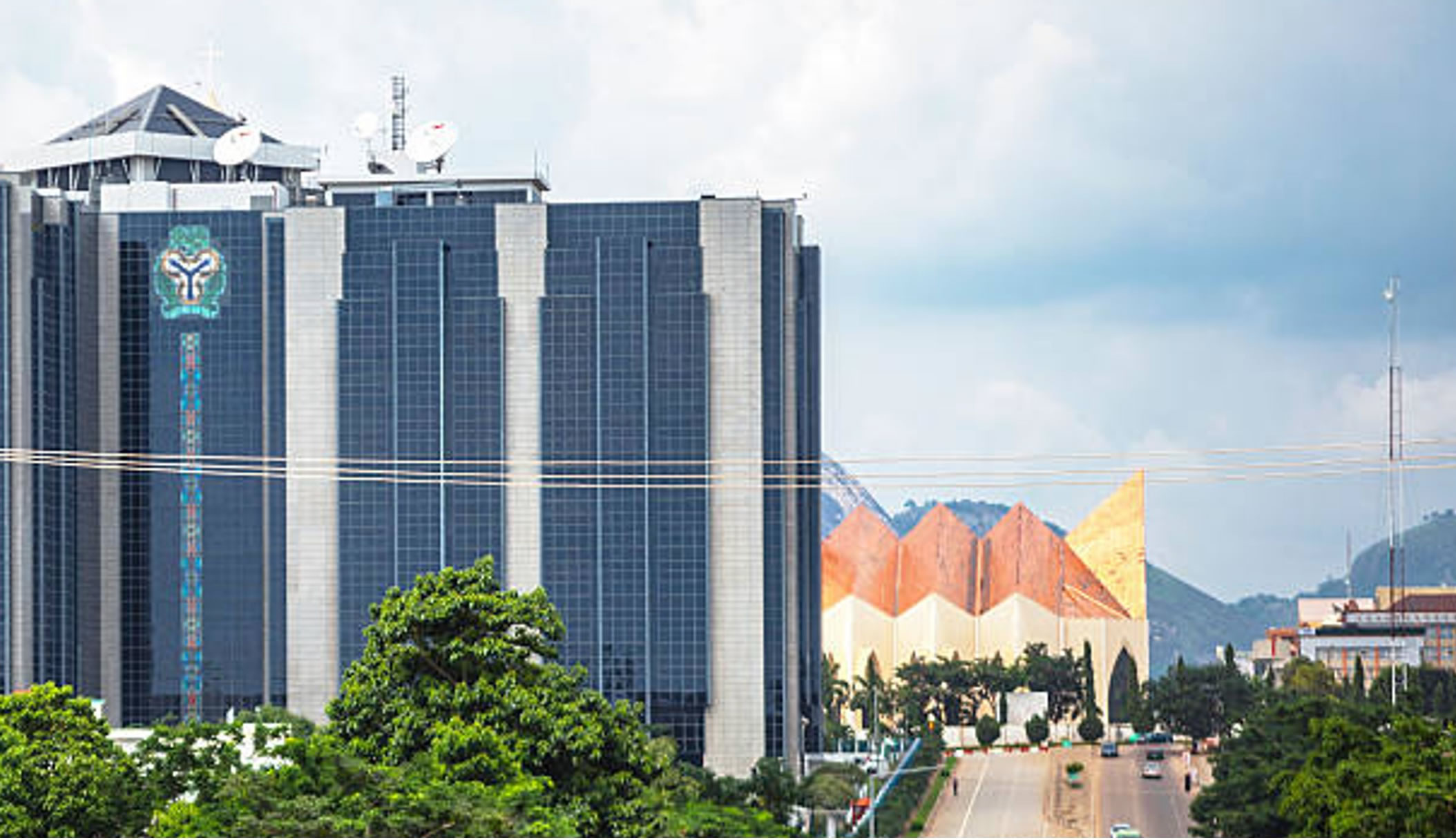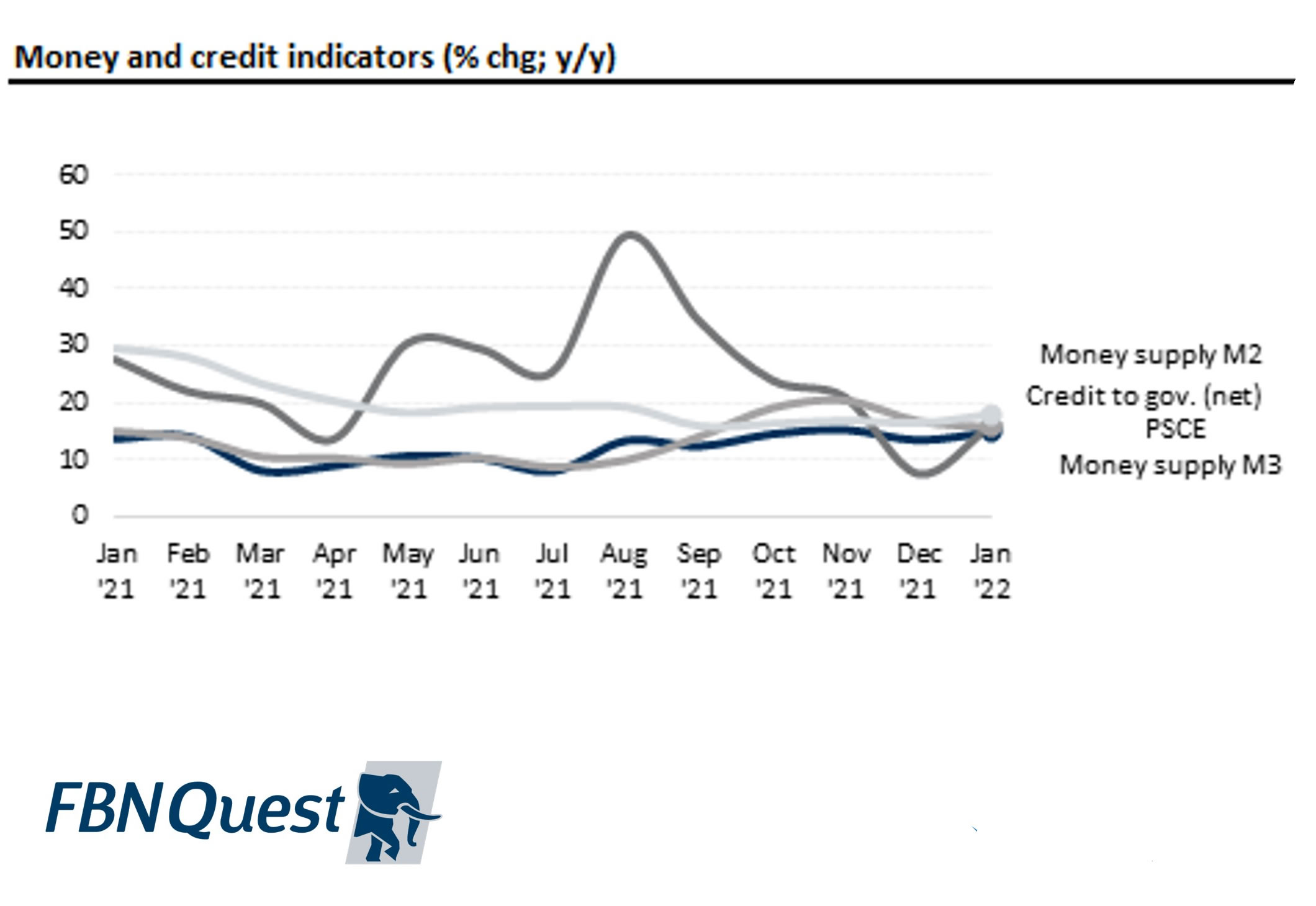Monday, March 14, 2022 / 09:09 AM / by FBNQuest Research / Header Image Credit: iStock
At its meeting in January, the monetary policy committee (MPC) voted unanimously to maintain its policy rate at 11.5% and keep all other parameters unchanged. The minutes of the MPC meeting published by the CBN last week provide insight into the committee members' thoughts. Opening with commentary on the global economy, drawn mostly from the IMF's World Economic Outlook, members noted the downside risks to the global economic recovery arising from increased inflationary pressures, rising energy prices, disruptions to global supply chains, and rising global debt. Members highlighted that this trend constituted a challenge, requiring global monetary policymakers' decisions to strike a balance between supporting output growth and keeping inflation under control. Its core message was that given the uncertainties in the external and domestic environment and the still fragile growth of the domestic economy, a cautious approach is required before adopting a more hawkish stance.
Members, as at previous meetings, emphasized the risks posed to developing economies by monetary policy normalisation in advanced economies, including capital flow volatility, exchange rate pressures, and rising borrowing costs on the international debt market.
One member noted that while global trade has picked up, especially for goods trade, services trade remains subdued as some restrictions to movement remain in place in certain jurisdictions. He noted that global debt declined slightly to USD296trn in Q3 '21, after reaching an all-time high in Q2 2021.
On the domestic front, members were broadly of the opinion that output growth is still weak and required more policy support. In one member's words "it is not yet solid or stable" and further tightening of monetary policy would be injurious to the fragile growth achieved. Another member noted the still negative but declining output gap, pointing to a decrease to -1.8% in Q4 '21 from -3.3% in Q3.
Although committee members generally agreed that the increase in December inflation could be a brief blip owing to demand pressures from the holiday season and that they should wait and see the inflation trajectory, we discern less confidence about their perception of the inflationary trend. While headline inflation declined by 3bps in January, we forecast an increase in February, owing to rising energy costs due to the issues around the scarcity of premium motor spirit (petrol).
The ongoing conflict between Russia and Ukraine, which has put upward pressure on global energy and commodity prices, will inevitably feed into the inflation basket, complicating the MPC's decision at its meeting later this month.
While a hold decision is still likely, we sense that there may be a gradual shift in the position of some members, particularly if there is an uptick in February's headline inflation reading.
Members observed that the banking system remained resilient, with gross credit growth of 20% y/y to NGN24.6trn as of December '21. Non-performing loans ratio at 4.9% as at end-Dec '21 fell below the regulatory benchmark of 5.0%, due partly to recoveries, restructuring of facilities, and write-offs during the year, while the sector's capital adequacy ratio stood at 14.5%, slightly below the 15.0% regulatory minimum.
Committee members continued to favour the CBN's monetary intervention to targeted sectors of the economy and the use of administrative/sterilization measures to address liquidity surfeits in the system.
 Lagos, NG • GMT +1
Lagos, NG • GMT +1











 131 views
131 views






 Sponsored Ad
Sponsored Ad
 Advertise with Us
Advertise with Us









